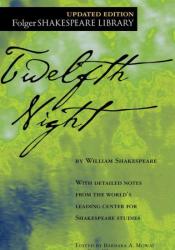Twelfth Night Publication
In 1601, the play, Twelfth Night, was published by William Shakespeare. According to Sparknotes, and in connection to this novel, it has mostly to do with a love triangle between the characters Orsino, Lady Olivia, and Viola. This is significant considering that there seems to be a love triangle between Annabella, Helen, and Arthur. The quote basically means that men's affections come and go but a woman's last forever. This shows the apparent sexism from the 17th century that carried on through the 19th, as Arthur believes it to be true. If the analogy stands true, Helen would be Viola, who Orsino ends up with. This might foreshadow that Arthur stays in love with Helen despite flirting with Annabella. In the play, Viola also dresses up like a man and I think that is significant because Helen has a lot of characteristics of a man; she is very independent and is not afraid of confrontation like a wife of the19th century should have been. Arthur points this out to her by telling her he will not "submit" to her or be "dictated" by her despite her being his wife. I also believe the use of a quote from a play shows Arthur's "playfulness" in that he isn't taking her emotions seriously. This is a common theme in Shakespeare's plays, that women are inferior and should not be taken seriously. These values stay present, at least with Arthur's character though seemingly the other men have the same mindset. Shakespeare sets a precedent in the 17th century with his works about how to treat and see women. Because Arthur uses this quote, it is clear that not much had changed in terms of the treatment of women.
Works Cited
"Twelfth Night" Barns and Noble. 2020. https://www.barnesandnoble.com/w/twelfth-night-william-shakespeare/11166...
"Twelfth Night Act 2 Scene 4" Sparknotes. https://www.sparknotes.com/nofear/shakespeare/twelfthnight/page_88/

